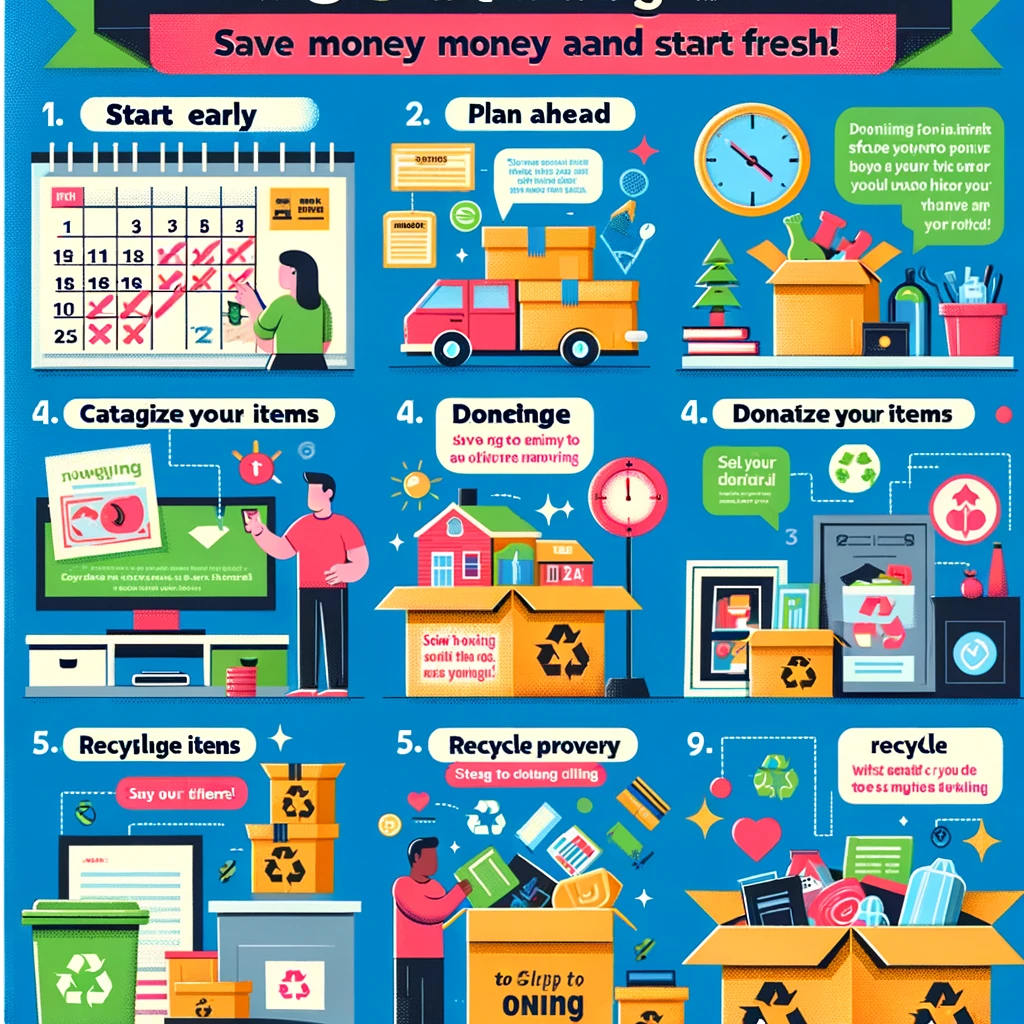

When budgeting for moving out, consider the following essential points:
Many people view moving as a difficult and expensive task. But with careful planning and budgeting, you can make your move go more smoothly and affordable. Budgeting for Your Move How to Plan and Save In this blog post, we will provide helpful tips on how to save money on your move. So read on for some valuable advice!
1. Make a Budget
The first step to budgeting your money is to figure out how much money you have coming in each month. This includes your income from all sources, such as your job, investments, and any other source of income. Once you have your total monthly income, you can start to figure out how much you need to spend on essentials, such as housing, food, and transportation. From there, you can start to allocate funds for other expenses, such as entertainment and savings.
2. Track Your Spending
Once you have a budget in place, it is important to track your spending to ensure that you are staying on track. There are a number of ways to do this, including using a budgeting app or tracking your expenses manually. Tracking your spending will help you to identify any areas where you may be overspending so that you can make adjustments to stay within your budget.
3. Cut Expenses
If you find that you are having difficulty staying within your budget, one option is to cut expenses. This may mean reducing your spending on non-essentials, such as entertainment and dining out. You can also save money by cutting back on costs associated with housing, transportation, and other essentials. By cutting expenses, you can free up more money to put towards savings or other financial goals.
4. Boost Your Income
If cutting expenses is not enough to help you stay within your budget, another option is to boost your income. This can be done by working overtime or getting a second job. If you are unable to work more hours, you may also be able to increase your income by asking for a raise at your current job or negotiating a higher salary at a new job. By increasing your income, you can ease the financial strain of moving out and help yourself reach your financial goals more quickly.
Once you have your rent and your bills paid, and set aside enough for expenses getting back and forth to work, you can figure out your food budget. There are hundreds of pages of advice on the internet about cutting your food budget but here are the basics: eating at home is cheaper than eating out, and cooking from scratch is cheaper than eating convenience food. Cooking from scratch is also healthier because you control what goes in it, and that will save you money on doctor bills. It’s OK to start with box mixes to learn the basics, then graduate to cooking the same kind of dishes from scratch. Your taste buds will thank you.
Eggs are cheap and you can fix them lots of different ways. They already have a lot of protein but you can boost that by adding, say, shredded cheese to scrambled eggs. Eat them with toast and have some fruit and a cup of coffee or tea, and there is a good hot breakfast with no empty calories from sugary cereal in sight.
Take advantage of sales on frozen veggies. They are healthier than cans and less wasteful because you only use what you need and leave the rest frozen until you want to use it.
Stay out of Starbuck’s except for a treat now and then. You can make your own coffee much cheaper and with a tremendous savings in calories as well.
You can download lots of free recipes online. If you don’t know how to do a cooking technique, search on You Tube and you’ll probably find several videos that will show you. If you learn one or two new things a week, by the end of the year you will be a pretty good cook. Also if you can take a cooking class as an elective that will come in handy!
One way you can save money is to cook ahead on the weekends. Get some frozen dinner containers–they’re microwaveable and they generally have three sections. Make up two or three different meal menus and freeze your own TV dinners to heat up when you get home.
Soup is cheap and lasts for several meals. You can put a pot of soup to simmer on the back burner while you’re cooking and packaging your prepared ahead meals. You will just have to stir it now and then. Or put it in a crock pot and forget it until it’s done.

Instead of buying those little cans of cooked chicken and chicken broth, buy a chicken and cook it in your crock pot. Shred the meat off the bones and package it, then strain the broth into 8 or 16 ounce containers. Write the date on freezer tape and label the containers, and freeze. This will save you a lot of money and you will have chicken meat and broth on hand. If you use beef broth and shredded beef you can do the same thing with a cheap cut of beef. It sounds like a lot more work than it really is.
Meat will be your biggest expense. Eating meat-free a couple days a week will save you a lot of money. Also look into ethnic dishes that use smaller amounts of meat to create flavor rather than having a huge piece of meat as the main course. Think a chunky beef stew with lots of veggies served over pasta instead of a half-pound burger.
You can save a lot of money buy bringing lunches and snacks from home. Again there are also the health benefits as well as the immediate cash savings. The cash savings will add up fast when it can cost £5 even for a cheap restaurant lunch.
Get a water filter and a few reusable water bottles. You can save a lot of money over buying expensive bottled water, especially if you drink as much water as I do!
Grow your most commonly used herbs in window sill pots. Fresh herbs taste best and if you take good care of the plants they will stay productive for a long while.
Another way to save money, as well as buy fresh and eat local in season, is to go to the farmer’s market. If you see something interesting but don’t know how to cook it, ask the farmer and you will learn how to fix something delicious. I always hated squash until someone at the farmer’s market taught me how to select a good one and how to bake it.
Some other things to consider, if you like to be outdoors, is catching your own fish, joining a community garden, and/or picking berries or other produce in season.
Getting, preparing and eating your food can be a lifelong source of fun and enjoyment once you get past the drudgery of schlepping to the supermarket, opening a can, and eating something boring. Cheap doesn’t have to be dull.
helpful articles
Conclusion: Moving out is a huge milestone in anyone’s life, and it can be expensive. But by following some simple steps, you can save up enough money to make your move without breaking the bank. We hope these tips have helped and that you are now on your way to living independently! Are there any other tips or advice you would add? Let us know in the comments below. Lastly, if you need help moving all of your belongings, don’t forget to check out our friends at MTC London Removals Company – East London Removals they will take care of everything for you so that your move is as smooth and stress-free as possible.
